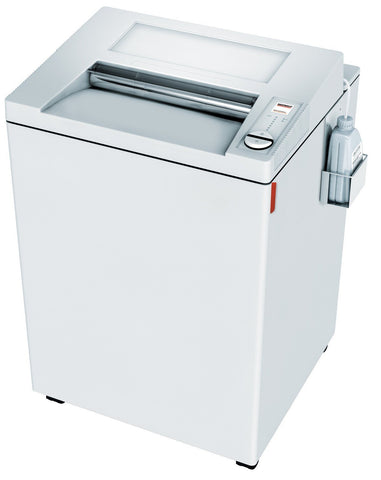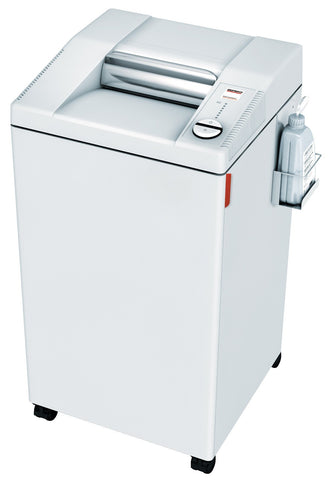Ever thought about which documents to shred and which to save?
This video lists the official documents that you should save and the ones that you should shred immediately.
Did you know that around half of all small businesses have already suffered a data security breach?
As a business owner or manager, you should know how secure your company information is. Businesses go through literally tons of documents every year. It's important for you to know what should be stored, how long it should be stored for, and how to dispose of it.
Losses from insecure data handling can cost you money and a massive headache. If you're thinking you should be proactive and start shredding, you're right.
However, it can be hard to decide what to keep and what to get rid of. There's a fine line between keeping proper records and having good data security. Are you wondering which documents you should keep and which you should trash?
Keep reading, in this guide, you're going to find out exactly when to shred it.
Always Shred These Documents
There are some strict guidelines to stick to on things you should always shred.
If a document that contains personal info, you should shred it. This includes names, addresses, and any phone information. Think about less obvious documents such as airline tickets and even old passports that have expired.
Shred Anything with Sensitive Personal Information
The first category of documents includes those that contain sensitive personal information. These should always be destroyed in a secure manner, i.e., by shredding. Storing these items is not necessary
Expired ID cards
Hold on to ID cards only until the company or government authority issues a new one. After that, protect them from being stolen by shredding them.
This includes key cards that give access to a room or building. If your office has a card system, create a clear company policy on replacements. For any new cards issued, the old card must be destroyed immediately.
Credit card statements
Credit card fraud is one of the most common methods of identity theft. Stolen credit card information can lead to unauthorized purchases, and even be used to open new accounts. You can avoid this by shredding your statements.
ATM and other receipts
If you're like most people, you probably don't give your receipts much thought. However, a small slip of paper like this one can actually make quite an impact. Don't be careless with them.
A card receipt contains sensitive info like your signature. ATM receipts often include account numbers. Keep this information secure by shredding all your receipts.
If you're a company manager, you should also consider your employees. When they hand in receipts for expenses, only keep them long enough to verify the purchases. You should shred them immediately after.
Bank statements and investment documents
Statements from banks and records of investment accounts contain even more highly sensitive information.
These documents go into greater detail than a simple credit card receipt. The good news is, it's not necessary to keep a hard copy of these documents. Many institutions now allow you to view all your statements online.
Canceled checks
Unused checks, old checks, and canceled checks should all be disposed of in a timely manner. A thief can use a canceled check to create a new check to draw on your account. This can happen even if the account is closed.
Insurance policy information and claims
Insurance policies, including annual statements, should only be kept as long as they are in effect.
If they contain information like your Social Security number this is even more important. Some also contain your account number, which is also valuable information that could be dangerous in the wrong hands.
Save These Documents for a While
There are some documents that have sensitive information, but you shouldn't shred them right away. Hold on to these items for reference for as long as you may need them. File by topic and shred only when they're no longer in use.
Tax records and receipts
The FTC advises keeping any tax-related information around for a while. Remember, you can be audited! The general guideline is to not shred these documents for seven years.
Tax returns are the only exception to this rule. They advise to hold on to these forever. If in doubt, contact the IRS for guidance on your specific situation.
Paycheck Stubs
As an employer, you should hold on to paycheck stubs for at least the amount of time the employee is with your company.
Property Purchase or Rental Records
Property is one area of the law where documents are extremely important. Keep your lease or purchase document around in case a dispute occurs.
Utility Bills
Utility bills are important for a company to have, but are not necessary to keep around forever. As a compromise, you could scan old bills to refer to when needed.
Warranty Documents and Receipts
As long as you have an item, the warranty should be kept.
Expired Credit Cards
Old credit cards should be shredded when you get a new one or when they expire. Before you buy a machine make sure it can handle these small plastic items. Putting them into a regular shredder could hurt the mechanism.
If you want a more powerful level of shredding, look into high-security shredders.
What Not to Shred
Employment Records
Similar to paychecks but much more important, employment records are one thing you need to hold on to. The general advice on employment records is: don't shred it.
Business license
When it comes to your company registration or business license, definitely don't shred it! This is one of the most valuable documents in your company's possession.
When and How to Shred It
If you ever get stuck, remember this rule of thumb. How hard will the document be to replace? If it will take time, effort and money, don't shred it just yet.
Hopefully, now you know exactly when and how to securely dispose of the most common office paperwork. Shredding is by far the best way method to clean up your document storage.
A basic cross cut shredder is a good place to start. If you need advice or don't know which shredder to buy, contact us today for help.




